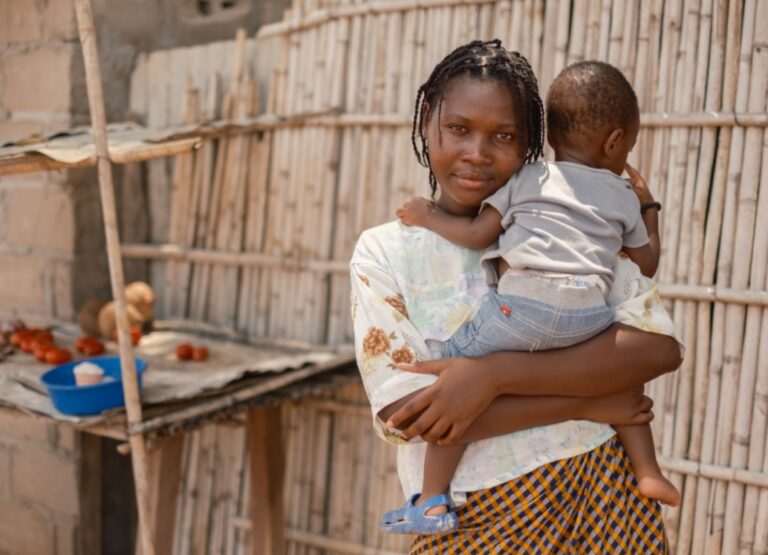Moving Minds Alliance (MMA), a coalition of 40 international organisations, has revealed that 194 million children under five face a global nutrition crisis.
While 149 million of them suffer from stunted growth, 45 million face severe wasting.
The group highlighted these alarming statistics in a statement issued by its Director, Tricia Young, ahead of the Nutrition for Growth (N4G) Summit, scheduled to take place in Paris, France from 24 to 28 March.
During the summit, MMA and its partners will convene to emphasise the urgency of making nutrition an absolute priority in development policies.
Early childhood
MMA emphasised that the early years of life are crucial for children’s health and cognitive development.
While stating that the first 1,000 days from conception to the age of three, represent the most active phase of brain development, during which nutrition has the greatest impact, MMA mentioned that 90 per cent of brain development occurs before the age of five, making nutrition in the early years essential for learning and overall growth.
However, global malnutrition statistics paint a grim picture. World Health Organisation 2024 data indicates that globally in 2022, 149 million children under-five were estimated to be stunted (too short for age), while 45 million were estimated to be wasted (too thin for height).
According to MMA, these children not only face an immediate threat to their survival but also suffer long-term effects of early childhood malnutrition, increasing their vulnerability to chronic diseases, a weakened immune system, and impaired cognitive development that can affect their learning abilities and overall well-being into adulthood.
The Alliance further emphasises that early childhood nutrition goes beyond food, serving as a fundamental pillar for brain development and lifelong well-being, particularly in crisis-affected regions where young children face multiple risks during their most rapid growth period. Similarly, children with disabilities are twice as likely to suffer from malnutrition during these crucial early years, with high disability rates recorded among young children living in conflict zones.
“The Nurturing Care Framework demonstrates that nutritional interventions alone are not enough, they must be integrated with responsive caregiving, early learning, health, and protection, especially during these critical years.
“Infant malnutrition has irreversible consequences. In low and middle income countries, nearly half of all deaths among children under age five are linked to undernutrition. Conflict-affected countries are particularly vulnerable, with malnutrition rates reaching 27.2 per cent, which is six times higher than in non-affected countries,” the statement reads in part.
Nutrition, a gender issue
According to MMA, nutrition is a gender issue as over 60 per cent of people suffering from chronic malnutrition are women and girls.
It stated that tackling gender inequalities in nutrition is essential to improving women’s and girls’ access to balanced diets and healthcare, ultimately breaking the intergenerational cycle of malnutrition.
While acknowledging that access to adequate nutrition is deeply unequal, the alliance highlighted that malnutrition disproportionately affects children living in humanitarian crises, conflict zones, or forced displacement situations.
It noted that malnutrition can cause or worsen developmental delays and disabilities in young children, whose nutritional and medical needs are often more complex.
However, it lamented that programs and policies supporting the nutrition of children with disabilities, developmental delays, and feeding difficulties remain insufficient, particularly in terms of access to both general and specialised services, as well as family support.
Call to action
In response to the alarming rates of early childhood malnutrition, the Moving Minds Alliance (MMA) and its partners are urging global action to make early childhood nutrition a top priority.
They called on donors to increase funding specifically targeted at preventing and treating malnutrition during the first 1,000 days of a child’s life, as well as support for caregivers affected by emergencies, displacement, and crises.
The alliance also advocates for the establishment of dedicated funding for early childhood nutrition interventions, the creation of a financial baseline for integrated early childhood development initiatives, and a commitment to doubling related investments by 2030.
Additionally, MMA has urged policymakers to prioritise nutrition in national policies in line with the Nurturing Care Framework by supporting the prevention and treatment of wasting, ensuring caregivers’ mental health, and fostering alignment between child-centered and gender-focused approaches.
“Nutrition must be embedded in national strategies to ensure a comprehensive approach to early childhood development, particularly in crisis-affected regions,” the Alliance stressed.
To achieve these goals, the alliance is urging implementing partners to design and deliver integrated early childhood services that strengthen the capacity of frontline health and nutrition workers. They emphasised the need for programmes to be led by local actors and tailored to the specific needs of young children and families in crisis-affected settings.
France’s role in global nutrition efforts
As the host of the N4G summit, France has a critical role in driving international efforts to combat malnutrition.
MMA called on the French government to increase financial commitments, enhance transparency in nutrition-related funding and programmes, and mobilise global support for early childhood nutrition.
“The N4G Summit must serve as the starting point for a renewed commitment to ensure that no child is deprived of their fundamental right to adequate nutrition,” Young said.


